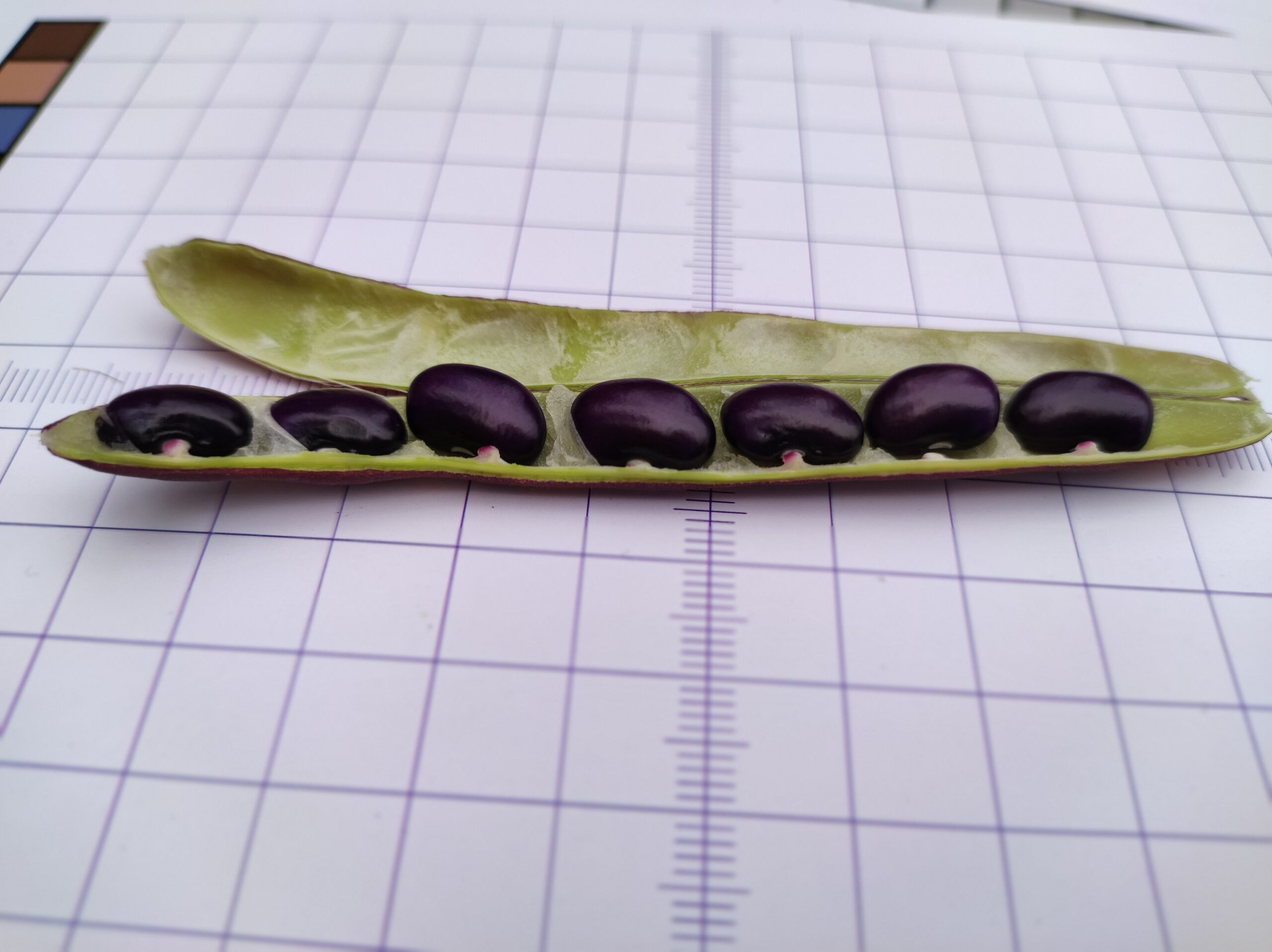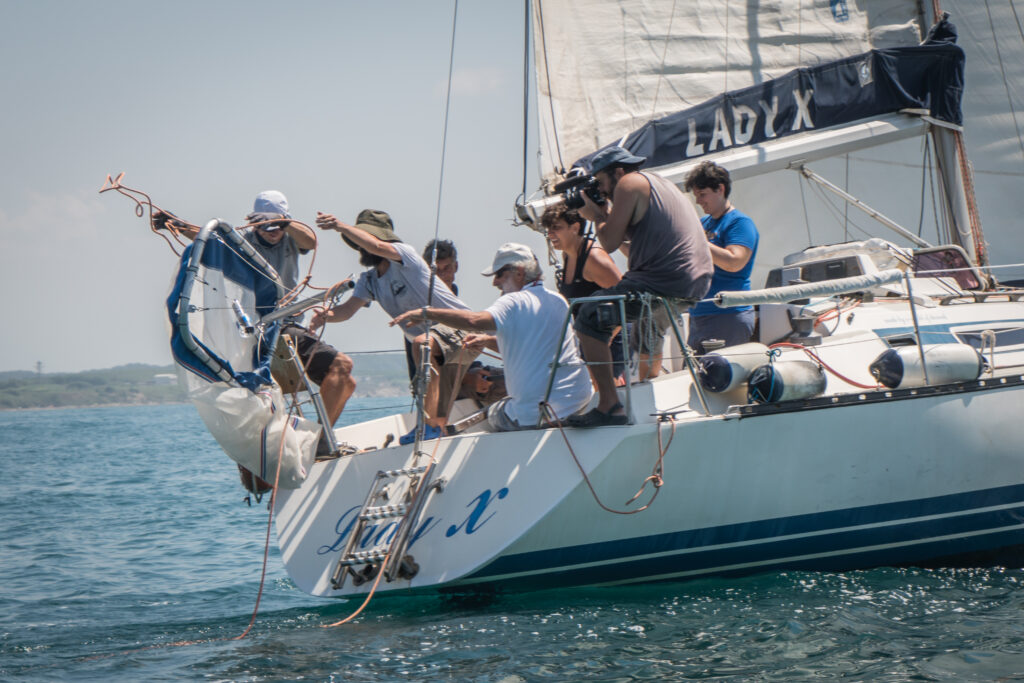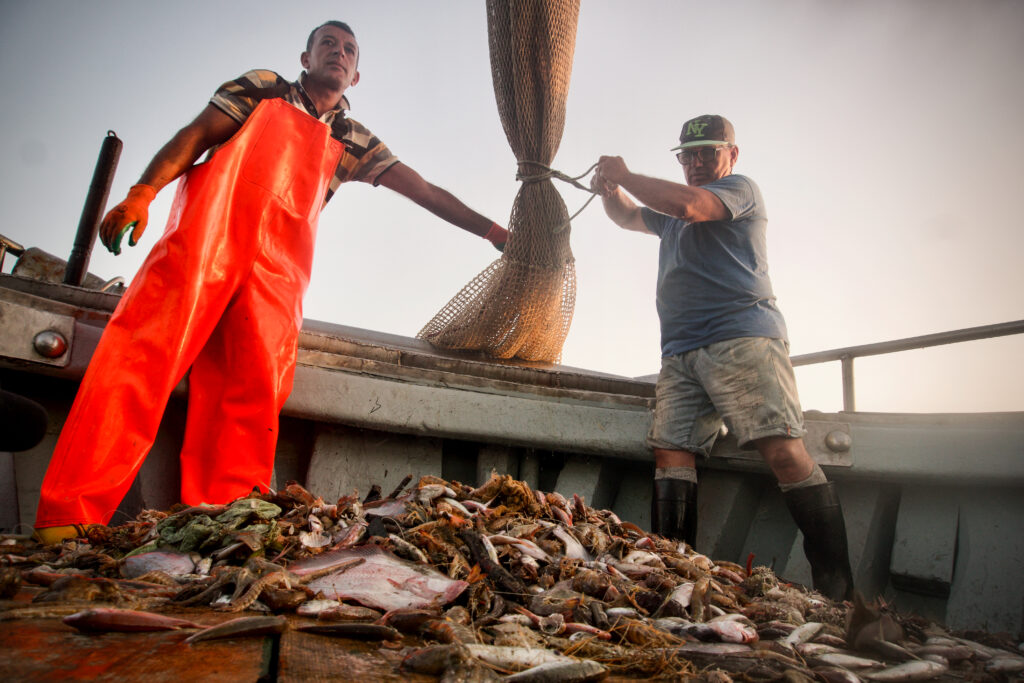- Online-Stream: Announcement of the Winners / European Union
- Press release as PDF
- Overview: Winners & Honorary Mentions 2024
- More about the European Union Prize for Citizen Science & the Jury
- Photos via Flickr
- Interview with Grand Prize Winners (Kerstin Neumann & Roberto Papa for INCREASE)
(Linz/Brussels, June 12, 2024) Citizen Science aims to involve committed citizens in scientific processes and thus promote an appreciative and constructive dialogue between the general public and science. Through joint work in the areas of data collection, data analysis and interpretation, innovative research approaches and questions arise that contribute to the collaborative design of the future.
Three projects that show the potential of citizen science will be honored in 2024 as part of the European Union Citizen Science Prize, which will be awarded for the second time this year.
Ars Electronica is once again commissioned to implement the competition as part of the IMPETUS project this year. IMPETUS stands for “Innovative Methods for Providing European citizens with Trusted and Useful Science”. The comprehensive cooperation with King’s College London (GB), the European Science Engagement Association (AT), Zabala Innovation (ES), T6 Ecosystems (IT), Science for Change (ES), and Nesta (GB) is intended to promote the implementation of the projects. The winning initiatives will be presented as part of the Ars Electronica Festival from September 4 to 8, 2024 at POSTCITY in Linz.
From submission to announcement of the winners
Projects could be submitted between January 10 and March 11, 2024. The deadline for submissions was followed by the jury meeting in the Ars Electronica Center: The international jury, consisting of Fermín Serrano Sanz (ES), Snežana Smederevac (RS), Sofie Burgos-Thorsen (DK), Luciana Marques ( BR), and Mairéad Hurley (IE), met from April 26 to 28 in Linz, to select three winning projects from 288 submissions from 54 countries. A total of 100,000 euros in prize money will be awarded.
Grand Prize and two Awards
The European Union Prize for Citizen Science – Grand Prize, worth 60,000 euros, goes to the INCREASE initiative, which is dedicated to research into the cultivation of European legumes. The aim is to create knowledge about local crops and their diversity in order to increase agricultural benefits.
The Digital Communities Award (20,000 euros) is awarded to the CoAct for Mental Health campaign, which has found ways to include include people with mental health problems in research that directly impacts their lives.
The Diversity & Collaboration Award (20,000 euros) is awarded to the SeaPaCS project, which collects data on plastic pollution in the oceans in order to be able to develop sustainable counter-strategies.
In addition, there are 27 Honorary Mentions.
Ars Electronica awards the European Union Prize for Citizen Science on behalf of the European Commission as part of the IMPETUS project. IMPETUS is funded by the European Union in the context of the research and innovation program Horizon WIDERA 2021-ERA-01 / Grant Agreement No. 101058677.
European Union Prize for Citizen Science
Grand Prize
Awarded for outstanding achievements in the advancement of knowledge through the empowerment of civil society and citizens in the development of the future.
INCREASE – Intelligent Collections of Food-Legume Genetic Resources for European Agrofood Systems
INCREASE Citizen Science Experiment (CSE)
Kerstin Neumann (DE), Roberto Papa (IT)
“The project has implemented a participatory research model with various levels of engagement tailored to accommodate participants’ diverse levels of expertise. […] Its extensive cooperation across countries, the involvement of citizens from different regions, and engagement with regional platforms emphasize its European dimension and importance.“
Excerpt from the jury statement
The diversity of crops in European agriculture and horticulture has declined significantly over time. In order to effectively meet future challenges in terms of food security, a change of direction is required.
INCREASE aims to develop efficient tools to conserve and improve agricultural biodiversity in Europe. Specifically, the project focuses on the effective use of the genetic diversity of legumes, which play a central role in a plant-based diet. An important idea of the project is to make plant genetic resources (PGR)— European, old or almost forgotten plant varieties—currently stored exclusively in gene banks, accessible to a broad population.
In this way, varieties that have already disappeared are being actively used again and the public is being made aware of the issues of biodiversity and the cultivation and consumption of edible legumes. Two highly relevant topics that are also listed in the SDG (Sustainable Development Goals) and the European Green Deal.
Let the beans sprout! INCREASE invites citizens to support research using the example of the common bean. For participants this means: receiving different types of beans by post, planting them, caring for them, harvesting them, processing them, eating them, enjoying them, documenting experiences and special features online and, thanks to a specially developed app, engaging in direct exchange with other participants.
The data collected about the different types of beans provides information about special taste experiences, but above all about how they grow in different places, which variety produces a particularly good harvest or is susceptible to disease. In the future, varieties with advantageous characteristics can be developed that are adapted to the desired properties or to the needs of different locations and climate zones. The use of Artificial Intelligence and Deep Learning enables comprehensive data comparison and image analysis.
Exchange online and offline. The INCREASE (CSA) app guides participants through the process. All content is available in different languages in order to reach interested parties from as many countries as possible. Also part of the INCREASE initiative are events with experts who address questions about nutrition, sustainability, and the importance of legumes in the context of climate change. Projects with schools and garden clubs are also being implemented.
INCREASE therefore not only contributes to science, but also to raising awareness in society.
Credits
INCREASE Consortium – the INCREASE project has received funding from the EU Horizon 2020 research and innovation program under grant agreement no. 862862.
European Union Prize for Citizen Science
Digital Communities Award
Awarded for demonstrating excellence in creating and supporting communities, delivering social benefits, and fostering an open and inclusive civil society through the innovative or alternative use of digital technologies.
CoAct for Mental Health
OpenSystems group (ES)
“This project allows citizens to play an active role in research that directly impacts their lives and harnesses the power of technology to include marginalized voices as active participants in the transformation of mental health care. Technology in this case facilitates the participation of citizens in developing a personalized approach to healthcare and medicine. Overall the CoAct project fosters an open and inclusive civil society by empowering their community to critically engage with digital technologies—a worthy winner of the 2024 Digital Communities Award.“
Excerpt from the jury statement
Scientific research on the role of family and other social networks in the context of mental health problems is sparse. CoAct for Mental Health stands for a research approach that involves affected citizens as co-researchers.
32 people with mental health issues and their relatives became co-researchers and actively participated in the development of the first Telegram chatbot CoAct for Mental Health (in the Catalan original: CoActuem per la Salut Mental). A chatbot that enabled the continuous collection of answers from hundreds of participants in a safe space over a period of three years. The result is countless micro-stories from around the world that offer first-hand experiences on the topic of mental health—in relation to social interactions with close family members, friends, work colleagues, or neighbors.
The aim of the chatbot was to involve a broad public, to collect and scientifically evaluate the lived experiences of those affected and their close environment in order to gain insights into the people with whom people with mental health issues have close emotional ties. Because they can promote social interactions, facilitate recovery processes, improve quality of life, and counteract social exclusion.
Data interpretation and measures. The large-scale scientific research found a large community of contributors who were invited to face-to-face sessions to interpret the data collected via the chatbot. As a result of the project, 14 recommendations were formulated, which were sent to high-level local and regional healthcare representatives and published in the form of European and local policy briefs.
Credits
CoAct for Mental Health is part of the CoAct. CoAct has received funding from the European Union’s Horizon 2020 Research and Innovation program under grant agreement No. 873048.
European Union Prize for Citizen Science
Diversity & Collaboration Award
Awarded for excellence in grassroots approaches, explorative collaboration, cultural and gender diversity, community participation, stakeholder engagement and social inclusivity.
SeaPaCS
Participatory Citizen Science against Marine Pollution
Chiara Certomà – University Sapienza Rome (IT), Luisa Galgani – University of Siena (IT), Federico Fornaro – Raw-News (UK) and Lega Navale Italiana Anzio (IT), Alessio Corsi – CNR ISMAR (IT), Giuseppe Lupinacci – Raw-News (UK) und Lega Navale Italiana Anzio (IT)
“SeaPaCS is especially exemplary for centering a community-led grassroots approach and for its attention to overcoming extractive tendencies in Citizen Science (citizens as “sensors”), by involving citizens beyond plastic sampling and data collection in activities such as plastisphere DNA analysis, documenting underwater ecological niches, creating photo and video exhibitions, testing DIY microplastic trawling instruments, and building marine plastic recycling stations.“
Excerpt from the jury statement
SeaPaCS is a participatory project aimed at combating plastic pollution in the oceans. Research location: The coastal town of Anzio near Rome. The initiative combines natural and social science research to raise awareness of the dramatic consequences of man-made ocean pollution and encourage local communities to behave and think sustainably. How? By actively involving fishermen, seafarers and interested citizens from different sectors of activity to address two questions: How does plastic pollution affect local biodiversity? And how can the experiences of those involved help reduce plastic waste and promote sustainable behavior?
Together against plastic. SeaPaCS‘s actions focus on the Mediterranean, a unique habitat that is home to 32 percent of all endangered marine ecosystems in Europe and suffers significantly from plastic pollution. The local economy of the small coastal town of Anzio relies heavily on fishing, commercial shipping and tourism.
SeaPaCS brings together sailors, students, associations, sailors, divers, scientists, videographers, and photographers. They all contribute to the project in a variety of ways: from taking plastic samples to analyzing microbial life or improving waste management in the port. Together they are developing a new awareness of marine plastic pollution and working together to find long-term solutions.
SeaPaCS documents the results in exhibitions and the initiative has already led to a number of international follow-up projects.
Credits
SeaPaCS has been funded by the European Union via the Horizon project IMPETUS4CS, coordinated by the DIGGEO@ESOMAS lab at the ESOMAS Department, University of Turin and with the support of the ESOMAS Public Engagement, partnered by the Italian Naval League Anzio and Raw-News, with the endorsement of the United Nation Decade of Ocean Sciences for Sustainable Development.
European Union Prize for Citizen Science
Honorary Mentions
ASD Publics: Playable cities for all
Raquel Colacios (ES), Blanca Calvo Boixet (ES)
Bellingcat: A Collective Of Citizen Journalists Using Open Source Data To Investigate Matters Of Public Interest
Bellingcat (NL)
BP100: Community and Architecture Festival
Hungarian Contemporary Architecture Centre (HU)
Carnivore Tracking Project: Involving volunteers in wolf and lynx monitoring
Miroslav Kutal (CZ), Michal Feller (CZ), Romana Uhrinová (SK), Barbora Černá (CZ), Carnivore Conservation Programme, Friends of the Earth Czech Republic (CZ)
CITIZENS FOR SDG 15.1
Ivana Radović (RS)
Cultural Reforesting: How can we (in the west) renew our relationship with nature?
Dr. Sarah Edwards (GB), Andrew Franzkowiak (GB), Dr Kim Salmon (GB), Arji Manuelpillai (GB), Adam Kammerling (GB), Jess Ihetojeh (GB), Dr Will Pearse (GB), Dr Tilly Collins (GB), Stephanie Hot (GB), Heather Ackroyd (GB), Dan Harvey (GB), Eloise Moody (GB), Vicky Long (GB), Abigail Hunt (GB), Finn Chatwyn-Ross (GB), Kinship Workshop (GB), Harun Morrison (GB), Kim Coleman (GB), Connor Butler (GB), Dawn Stevens (GB), Andrew Merritt (GB), Bryony Benge-Abbott (GB), Nestor Pestana (VE)
Domestic Heat Comfort for Energy Poverty and Climate Adaptation
Yağız Eren Abanus (TR), Sinan Erensü (TR), Duygu Dağ (TR), Cemre Kara (TR), Barış Türkdoğan (TR), Meryem Uyaver (TR), Elif Bengi Güneş (TR), Oğulcan Kınalı (TR), İlknur Akgül (TR), Daniela Kızıldağ (TR), Gülnaz Yücel-Durmuş (TR), Merve Özhan (TR), İdil Besler (TR), Tuğba Uçar (TR), Mekanda Adalet Derneği (Center for Spatial Justice) (TR)
Dreamachine: A major interdisciplinary programme fusing world class artists with leading scientific researchers.
Collective Act (GB), University of Sussex (GB), University of Glasgow (GB)
Eco-Bot.Net: Defending The Digital Environment
Barnaby Francis (GB), Robert ‘3D’ Del Naja (GB), Dale Vince (GB)
GALLANT: Empowering Glasgow Communities for Climate Resilience and Biodiversity Conservation
Ria Dunkley (GB), Florence Halstead (GB), Sarah Gambell (GB), Becky Duncan (GB)
HistorEsch: Citizen History Activities in the city of Esch-sur-Alzette
Thomas Cauvin (FR), Joella van Donkersgoed (NL)
iesaisties.lv: Citizen Science Platform for Humanities and Arts in Latvia
Krišs Salmanis (LV), Sanita Reinsone (LV), Eva Eglāja-Kristsone (LV), Ginta Pērle-Sīle (LV), Rita Grīnvalde (LV), Ieva Weaver (LV), Uldis Ķirsis (LV), ILFA’S DH GROUP (LV)
Intelligent Instruments in Citizen Science: Understanding Contemporary AI through Creative Practice
Thor Magnusson (IS), Jack Armitage (GB), Halla Steinunn Stefansdottir (IS), Victor Shepardson (US), Nicola Privato (IT), Miguel Angel Rozzoli (AR), Halldor Ulfarsson (IS), Sean O’Brien (US), Marco Donnarumma (IT), Sophie Skach (AT), Giacomo Lepri (IT), Intelligent Instruments Lab (IS)
kafsimo@karditsa, Activating citizens through biomass recycling into heating pellets
incommon (GR), Energy Community of Karditsa (GR)
Language Checkers – This is how we speak in Neckarstadt: Die Sprach-Checker – So sprechen wir in der Neckarstadt
Janin Roessel (DE), Christine Möhrs (DE), Elena Schoppa-Briele (DE), Rahaf Farag (EG), Heike Chan Hin (DE), Theresa Schnedermann (DE), Sprach-Checker team at the IDS (DE)
Let´s go out with Pl@ntNet app!
Ivana Polackova (SK), Pierre Bonet (FR), Tereza NGO(CZ)
Obstetric Coevolution: Coevolving obstetric practices to improve the childbirth experience
Irene Lapuente (ES), Anna Fosch Masllovet (ES), Dídac Roger i Homs (ES), La Mandarina de Newton (ES)
OdourCollect and D-NOSES: Citizen Science to foster environmental governance and tackle odour pollution
Fundación Ibercivis (ES)
ParKli: Participatory climate research to develop local early warning systems for climate protection
ParKli Team (INT) ParKli Team (DE), Reutlingen University, Herman Hollerith Center (DE), open science for open societies – os4os (DE)
RadoNorm Citizen Science Incubator
Tanja Perko (SI), Meritxell Martell (ES), Warren John (DE)
SEED LIBRARY
Saša Vidmar (SI), Ana Kosič (SI), Irena Škvarč (SI), France Bevk Public Library (SI)
Sicily’s Indigenous Cyber Tracker
Collettivo Rewild Sicily (IT), CyberTracker Italia (IT), Sicily Environment Fund (IT), Astrid Natura (IT)
Social inclusion and participation of Deaf and Hard of Hearing adults in Citizen Science for Climate Change (CitSci4All)
Katerina Zourou (GR)
The Home River Bioblitz
Jens Benöhr Riveros (CL), Vera Knook (NL), Carlos Velazco (MX), Enya Roseli (MX), Jelena Belojević (ME)
The Russian airstrike on the Mariupol Drama Theater
The Center for Spatial Technologies (UA)
The State of Our Trails (SoOT) Report: understanding and responding to single-use pollution (SUP) in recreational trail ecosystems through citizen science
Dom Ferris (GB), Trash Free Trails HQ (GB)
Youth partnership in suicide prevention research: fostering authenticity, collaboration and empowerment.
Maria Michail (GR), Niyah Campbell (GB), Rowmell Hunter (GB), Zaynab Sohawon (GB), Jamie Morgan (GB), Beckye Williams (GB), Kalen Reid (GB)
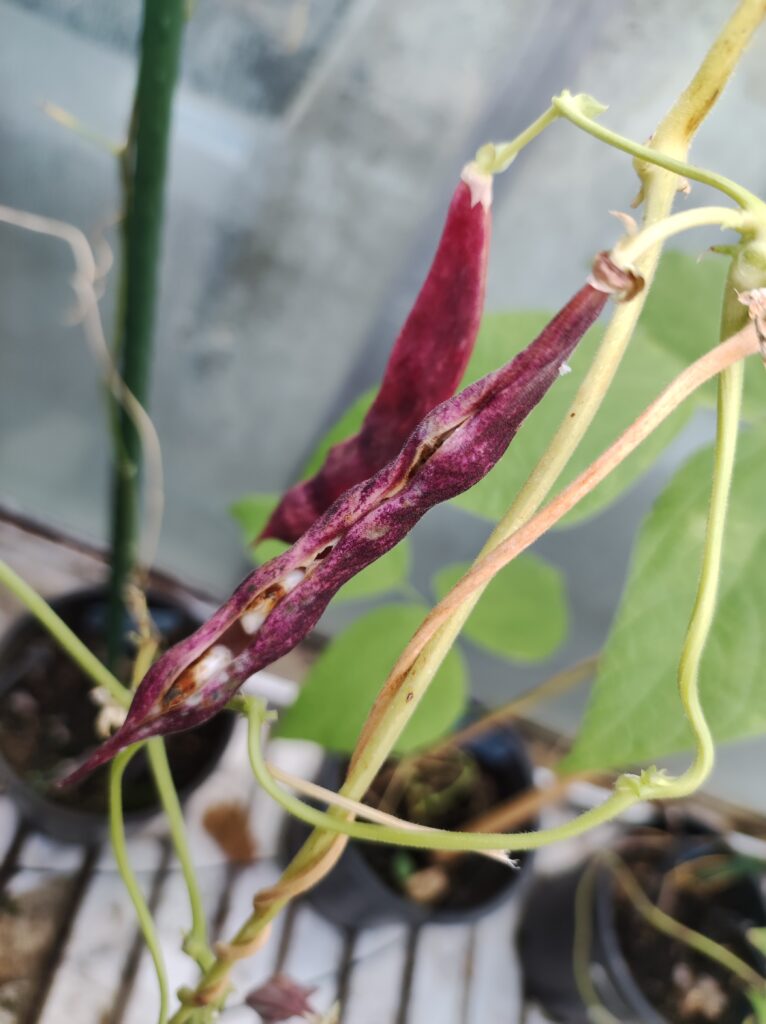
INCREASE aims to improve agricultural biodiversity in Europe – participants are encouraged to grow bean varieties that are thought to have been forgotten and to document their growth.
Photo: Elisa Bellucci & INCREASE Consortium
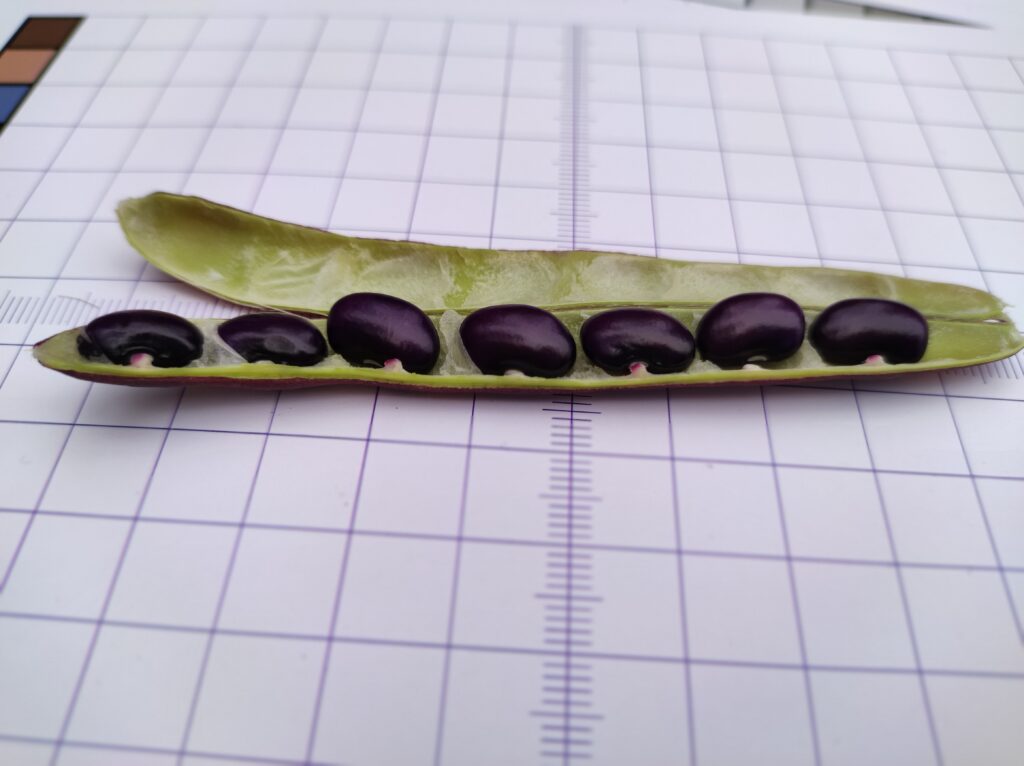
INCREASE raises awareness of the issues of biodiversity and the cultivation and consumption of edible pulses.
Photo: Elisa Bellucci & INCREASE Consortium
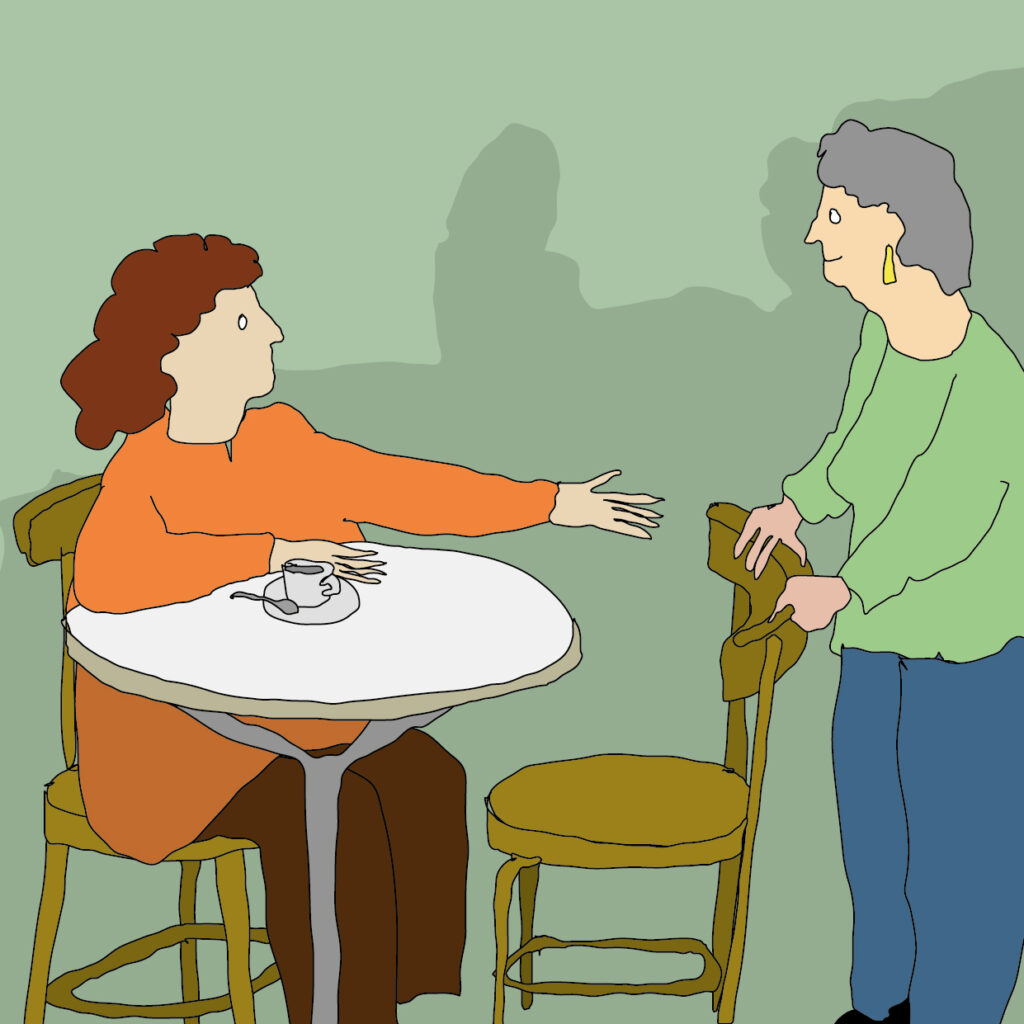
CoAct for Mental Health turns those affected into co-researchers in the context of mental illness. Shown here: The illustration of a microhistory collected during the three-year project.
Photo: Pau Badia
